Choosing the right website platform is a critical decision that affects the functionality, design, and scalability of your site. A good platform should align with your business goals, technical skills, and budget while offering flexibility for customization, SEO, and future growth. Whether you are building an e-commerce store, a blog, or a portfolio site, selecting a user-friendly and feature-rich platform ensures an efficient, professional, and engaging online presence.
*With WooCommerce plugin
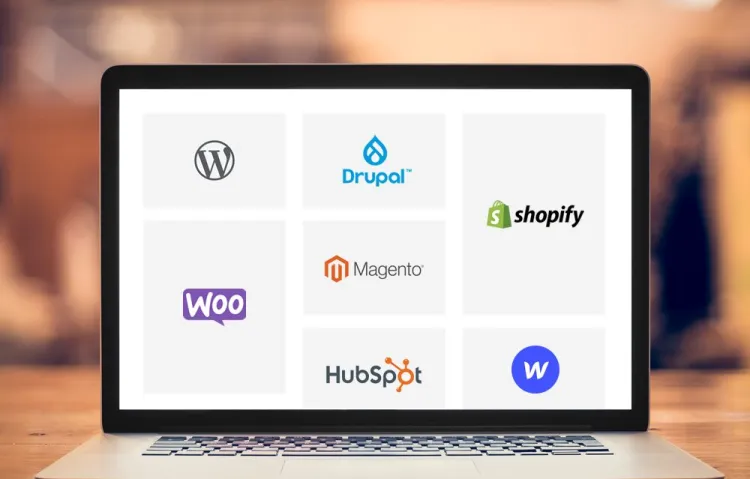

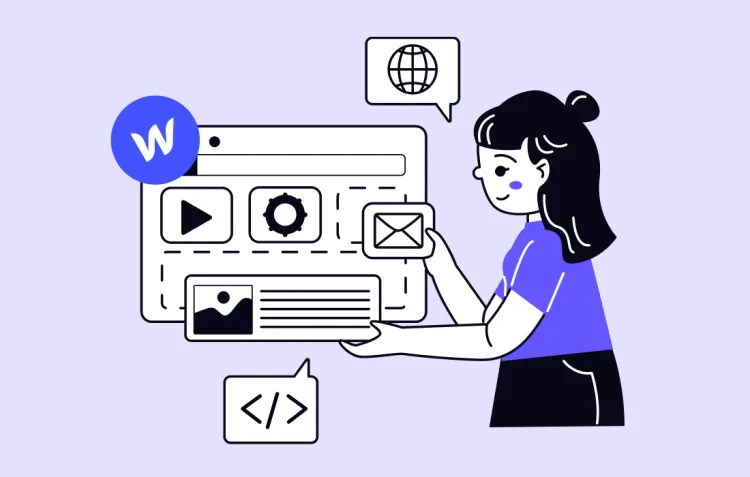
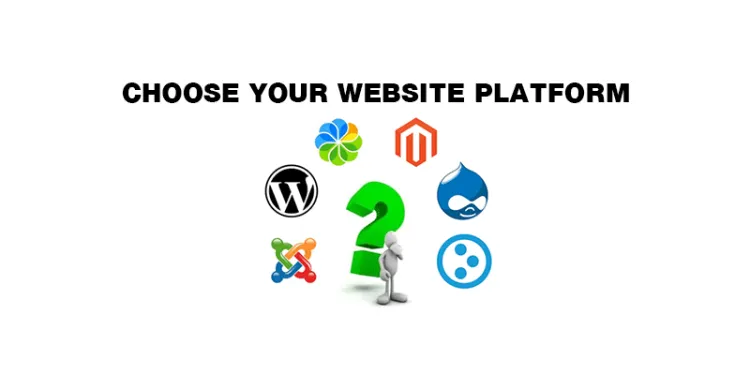
What do you want from your website platform?
Your website platform is more than just a digital storefront, it’s the foundation of your online success. Here are the key features you should prioritize when choosing your platform.1. ECommerce capabilities
Gone are the days when selling online meant complex coding and expensive setups. Modern website platforms should offer robust ecommerce features that grow with your business. Look for:- Secure payment processing
- Inventory management tools
- Multiple shipping options
- Mobile-friendly checkout process
- Product variant handling
2. Design freedom
Your website needs to stand out in a crowded digital marketplace. The right platform gives you:- Customizable templates that match your brand
- Drag-and-drop editing capabilities
- Mobile responsiveness
- Custom CSS/HTML options for advanced users
- Integration with design tools
3. Fast setup
Time is money, especially in the digital world. Your chosen platform should offer:- Quick installation process
- User-friendly interface
- Pre-built templates
- Intuitive content management
- Built-in SEO tools
How hands-on do you want to be?
Making the right choice about your level of involvement in website development can save you time, money, and frustration. Here is what you need to consider when deciding your approach.1. DIY Website Building
Taking control of your website development can be empowering and cost-effective. Modern platforms offer:- Visual website builders
- Pre-designed section blocks
- Ready-to-use color schemes
- Template customization options
- Built-in responsive design
2. Working with a web developer
Sometimes, professional help is the smartest investment you can make. A web developer can provide:- Custom functionality
- Advanced technical solutions
- Professional design expertise
- Ongoing maintenance
- Performance optimization
3. Pricing matters
Understanding the true cost of your website platform is crucial for long-term success. Consider these factors:- Monthly subscription fees
- Transaction costs for ecommerce
- Premium theme prices
- Plugin or extension costs
- Hosting and domain expenses
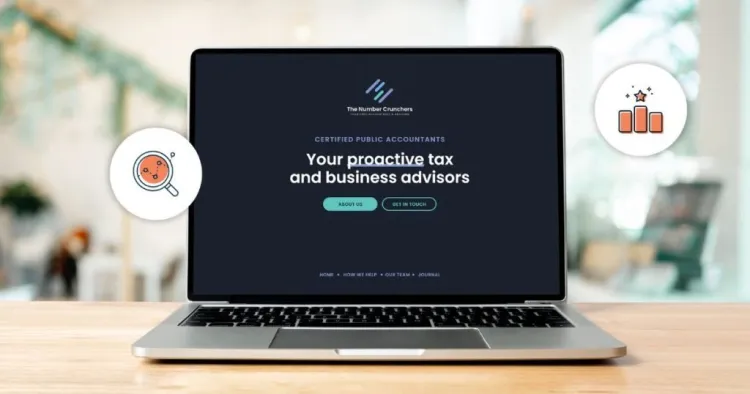
Key Features to Consider in a Website Builder
Choosing the right website builder can make the difference between a thriving online presence and a frustrating digital experience. Let’s explore the essential features that should be on your checklist.User-Friendly Interface
A great website builder should feel intuitive from day one. Look for:- Clean, organized dashboard
- Visual editing tools
- Straightforward navigation
- Clear menu structures
- Simple content management
Mobile Responsiveness
With mobile traffic dominating the internet, your website platform must look perfect on every device:- Automatic mobile optimization
- Touch-friendly elements
- Flexible layouts
- Fast loading speeds
- Readable text on all screens
SEO Tools
Your website builder should help you climb the search rankings with:- Meta description editors
- Custom URL options
- Image alt text tools
- XML sitemap generation
- Keyword optimization features
Integration Options
Modern websites need to work seamlessly with other tools:- Social media platforms
- Email marketing services
- Analytics tools
- Payment processors
- Customer management systems
Security Features
Protect your site and your visitors with:- SSL certificates
- Regular backups
- Firewall protection
- Form encryption
- Secure hosting
Performance Optimization
Speed and reliability matter for both users and search engines:- Image compression
- Caching options
- CDN compatibility
- Code optimization
- Server response time
Top Website Builders of 2024
The website builder landscape continues to evolve, offering more powerful features and capabilities than ever before. Let’s explore the leading platforms that are shaping the web development world in 2024.1. WordPress
WordPress stands as the undisputed titan of website builders, powering over 43% of all websites on the internet. But what makes it so special? Why Choose WordPress as Your website platform Builder:- Unmatched flexibility with thousands of themes and plugins
- Robust content management system perfect for blogs and complex websites
- Strong community support and regular updates
- SEO-friendly structure out of the box
- Cost-effective solutions for businesses of all sizes
- Complete control over your website’s code and hosting
- Extensive ecosystem of developers and designers
2. Shopify
Shopify has revolutionized ecommerce website building with its all-in-one solution:- Built specifically for online stores
- Advanced inventory management
- Multi-channel selling capabilities
- Secure payment processing
- Professional themes designed for conversion
- Extensive app marketplace for additional features
- 24/7 customer support
3. Wix
Wix continues to innovate with its intuitive drag-and-drop interface:- AI-powered website design assistant
- Extensive template library
- Built-in SEO tools
- Mobile optimization
- Custom animations and effects
- Free hosting with premium plans
- Professional business tools and apps
4. Squarespace
Wix continues to innovate with its intuitive drag-and-drop interface:- AI-powered website design assistant
- Extensive template library
- Built-in SEO tools
- Mobile optimization
- Custom animations and effects
- Free hosting with premium plans
- Professional business tools and apps
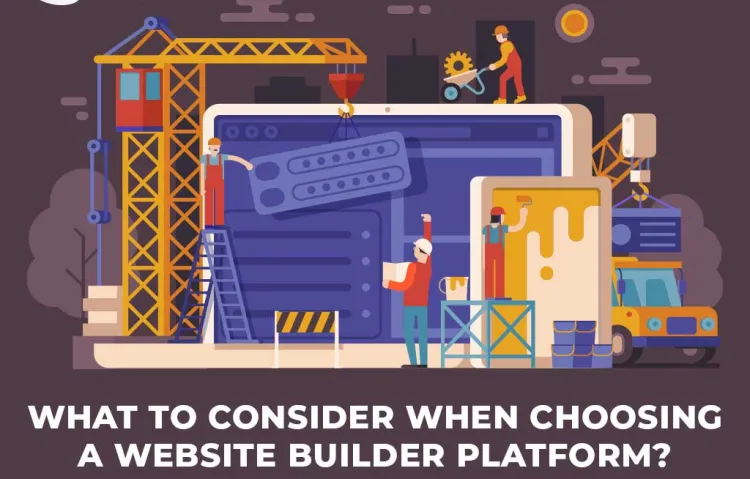
5. BigCommerce
BigCommerce stands out for serious ecommerce entrepreneurs:- Enterprise-level features
- Multi-channel selling
- Abandoned cart recovery
- Advanced product options
- B2B features
- Unlimited product variants
- No transaction fees
Categories of Website Builders
Finding the perfect website builder becomes easier when you know exactly what type of website you’re building. Let’s break down the best options for different needs.1. Best for Small Businesses
Small businesses need reliable, cost-effective solutions that grow with their needs: Top Picks:- Square Online: Perfect for businesses with physical and online presence
- Wix: Excellent for service-based businesses
- GoDaddy: Great for quick setup and basic business needs
- Professional email integration
- Appointment scheduling
- Contact forms and lead capture
- Local SEO tools
- Customer relationship management
2. Best for E-commerce
Online stores require robust features to manage products and process orders efficiently: Top Picks:- Shopify: Best all-around ecommerce solution
- BigCommerce: Excellent for scaling businesses
- WooCommerce: Perfect for WordPress users
- Inventory management
- Multiple payment gateways
- Shipping calculation tools
- Product variant handling
- Shopping cart recovery
3. Best for Personal Websites/Blogs
Bloggers and personal website platform owners need platforms that prioritize content management: Top Picks:- WordPress.com: Ultimate blogging platform
- Medium: Simple, focused writing platform
- Ghost: Modern publishing platform
- Easy content creation tools
- Comment management
- Social sharing options
- Newsletter integration
- Media management
4. Best for Creatives and Designers
Creative professionals need platforms that display their work beautifully: Top Picks:- Squarespace: Outstanding design templates
- Format: Specialized portfolio features
- Pixpa: Great for photographers
- Portfolio layouts
- Image protection
- Client galleries
- Custom domain options
- Video integration
Comparing Website Builders
Making an informed decision requires understanding how different website builders stack up against each other. Let’s break down the key comparison points to help you make the right choice.1. Ease of Use
Beginner-Friendly Platforms:- Wix: 9/10
- Intuitive drag-and-drop interface
- AI-powered site creation
- No coding required
- Squarespace: 8/10
- Clean interface
- Structured editing
- Section-based design
- WordPress: 6/10
- Steeper learning curve
- More powerful capabilities
- Some technical knowledge needed
2. Pricing Comparison
Monthly Costs (Basic Business Plans):- Wix: $23/month
- Shopify: $29/month
- Squarespace: $23/month
- WordPress: $15-30/month (hosting + theme)
- BigCommerce: $29.95/month
3. Feature Comparison
Essential Features by Platform:| Feature | WordPress | Shopify | Wix | Squarespace |
| Ecommerce | ✓* | ✓✓✓ | ✓✓ | ✓✓ |
| Blogging | ✓✓✓ | ✓ | ✓✓ | ✓✓ |
| SEO Tools | ✓✓✓ | ✓✓ | ✓✓ | ✓✓ |
| Custom Design | ✓✓✓ | ✓✓ | ✓✓✓ | ✓✓ |
| Apps/Plugins | ✓✓✓ | ✓✓✓ | ✓✓ | ✓ |
4. Performance Metrics
Loading Speed (Average):- WordPress: Variable (hosting dependent)
- Shopify: 2.5s
- Wix: 2.9s
- Squarespace: 2.7s
- All platforms offer mobile-responsive designs
- Wix and Squarespace provide automatic optimization
- WordPress requires theme-dependent optimization
5. Support Options
Customer Support Quality:- Shopify: 24/7 phone, email, chat
- Wix: Phone and ticket support
- Squarespace: 24/7 email, chat
- WordPress: Community forums, paid support
- Complex websites
- Custom functionality
- Blogs and content-heavy sites
- Budget-conscious projects
- Dedicated online stores
- Multi-channel selling
- Scale-focused businesses
- International commerce
- Small business websites
- Portfolio sites
- Simple online stores
- Quick launch needs
- Creative portfolios
- Professional services
- Restaurant websites
- Brand-focused sites
Pros and Cons of Each Builder
Understanding the strengths and limitations of each website platform builder can help you make an informed decision. Let’s analyze the major platforms in detail.WordPress
Pros:- Unlimited customization possibilities
- Massive plugin ecosystem (60,000+ plugins)
- Strong SEO capabilities
- Active community support
- Cost-effective for basic websites
- Complete control over your data
- Regular updates and improvements
- Requires more technical knowledge
- Security maintenance needed
- Can be slow without optimization
- Updates may break functionality
- Hosting management required
- Potential plugin conflicts
- Higher learning curve
Shopify
Pros:- Purpose-built for ecommerce
- Reliable hosting included
- Excellent security features
- Built-in payment processing
- 24/7 customer support
- Regular platform updates
- Strong app marketplace
- Monthly fees can be high
- Transaction fees unless using Shopify Payments
- Limited content flexibility
- Design customization restrictions
- Blog features are basic
- Can get expensive with premium apps
- Limited export options
Wix
Pros:- True drag-and-drop editing
- Extensive template selection
- Built-in SEO tools
- Free plan available
- AI design assistance
- Regular feature updates
- Integrated marketing tools
- Cannot switch templates after publishing
- Limited export capabilities
- Page load speed issues
- Advanced features require premium plans
- Can be overwhelming with options
- Limited blogging capabilities
- Some features lack depth

Squarespace
Pros:- Beautiful, modern templates
- All-inclusive platform
- Mobile-optimized designs
- Strong ecommerce features
- Professional looking results
- Excellent image management
- Built-in analytics
- Higher pricing than competitors
- Limited third-party integrations
- Less flexibility in design
- No free plan available
- Limited export options
- Steeper learning curve than expected
- Few advanced marketing tools
BigCommerce
Pros:- Robust ecommerce features
- No transaction fees
- Multi-channel selling
- Built-in SEO features
- Advanced product options
- B2B capabilities
- Strong security features
- Higher learning curve
- Limited free themes
- Annual sales thresholds
- Complex interface
- Premium features are costly
- Limited design flexibility
- Can be overwhelming for beginners
User Experience and Interface Comparison
The success of your website platform often depends on how easily you can manage it. Let’s dive into the user experience and interface details of major website builders to help you understand what to expect.Dashboard Experience
WordPress Dashboard- Layout: Clean, organized sidebar navigation
- Learning Curve: Moderate to steep
- Key Features:
-
- Intuitive content editor
- Clear menu organization
- Plugin management section
- Media library access
- User role management
- Time to Proficiency: 2-3 weeks for basics
Shopify Control Panel
- Layout: Modern, commerce-focused design
- Learning Curve: Moderate
- Key Features:
-
- Product management front and center
- Order processing workflow
- Inventory tracking
- Customer management
- Analytics dashboard
- Time to Proficiency: 1-2 weeks
- Layout: Visual, drag-and-drop interface
- Learning Curve: Gentle
- Key Features:
-
- Real-time preview
- Right-click functionality
- Element animations
- Mobile editor
- Design customization panel
- Time to Proficiency: 3-5 days
- WordPress:
-
- Block editor for content
- Media management
- Revision history
- Bulk updates available
- Squarespace:
-
- Section-based editing
- Style editor
- Content scheduling
- Mobile app management
- Wix:
-
- In-line editing
- Dynamic content
- Blog management
- Multi-user collaboration
Mobile Management
Mobile Apps Comparison- WordPress:
-
- Full post management
- Media uploads
- Comment moderation
- Stats viewing
- Shopify:
-
- Order processing
- Inventory updates
- Customer communication
- Sales analytics
- Squarespace:
-
- Content editing
- Commerce management
- Analytics viewing
- Image uploading

Customization Interface
Design Tools- WordPress:
-
- Theme customizer
- Block patterns
- Custom CSS option
- Template editor
- Wix:
-
- ADI (Artificial Design Intelligence)
- Color schemes
- Font combinations
- Layout controls
- Squarespace:
-
- Style editor
- Section arrangements
- Global design controls
- Custom CSS capabilities
- WordPress:
-
- Contextual help tabs
- Admin documentation
- Community forums
- Developer resources
- Shopify:
-
- Help center
- Video tutorials
- Setup wizard
- Knowledge base
- Wix:
-
- Interactive tutorials
- Help articles
- Video guides
- Support tickets
Speed Optimization
- WordPress:
-
- Caching plugins
- Image optimization
- Database cleanup
- Code minification
- Shopify:
-
- Built-in CDN
- Automatic image optimization
- Asset compression
- Performance monitoring
- Wix:
-
- Global CDN
- Dynamic pages
- Mobile optimization
- Image compression
Best For Different Users
Beginner Users
- Recommended: Wix or Squarespace
- Why: Visual editors and structured guidance
- Learning Time: 1-2 weeks
Intermediate Users
- Recommended: Shopify or WordPress.com
- Why: Balance of features and usability
- Learning Time: 2-4 weeks
Advanced Users
- Recommended: WordPress.org or BigCommerce
- Why: Complete control and customization
- Learning Time: 1-3 months
Customization and Flexibility
Your website needs to stand out from the competition while delivering an exceptional user experience. Let’s explore how different website platform builders handle customization and mobile responsiveness. Exploring Customization Options in Website Builders Today’s website builders offer various levels of customization to help you create a unique online presence: Design Customization- Template modification capabilities
- Color scheme adjustments
- Typography options
- Layout flexibility
- Custom CSS/HTML access
- Plugin and app integration
- Widget placement
- Menu structure
- Form builders
- Page layouts
- Dynamic content areas
- Custom post types
- Media galleries
- Blog layouts
- Portfolio displays
- WordPress
- Unlimited theme customization
- Full code access
- Child theme creation
- Custom page templates
- Advanced widget system
- Shopify
- Liquid template language
- Theme editor
- Custom product fields
- Checkout customization
- App integrations
- Wix
- Drag-and-drop freedom
- Custom animations
- Interactive elements
- Design combinations
- Custom applications
- Automatic scaling
- Touch-friendly navigation
- Readable typography
- Quick loading times
- Optimized images
- Menu adaptability
- Form optimization
- Button sizing
- Content prioritization
- Image compression
- WordPress
- Mobile-responsive themes
- AMP support
- Mobile preview
- Touch-friendly elements
- Progressive loading
- Squarespace
- Built-in mobile optimization
- Automatic image scaling
- Mobile-specific styling
- Portrait/landscape adaptability
- Touch navigation
- Wix
- Mobile editor
- Device-specific layouts
- Mobile-specific content
- Animation optimization
- Mobile-friendly menus
- Regular mobile testing
- Speed optimization
- Content prioritization
- Touch target sizing
- Simplified navigation
- Improved SEO rankings
- Better user engagement
- Higher conversion rates
- Reduced bounce rates
- Broader audience reach
- Use real devices for testing
- Check different screen sizes
- Monitor load times
- Test all interactive elements
- Verify form functionality

Conclusion
In conclusion at ador agency , selecting the right website platform is key to building a site that meets your needs and supports your long-term goals. By considering factors like ease of use, scalability, customization options, and budget, you can choose a platform that not only facilitates a smooth setup but also grows with your business. A well-chosen platform ensures a strong foundation for your online presence and future success.FAQs
1. What Are the Most Popular Website Platforms?
- WordPress.org: Ideal for those wanting full control and customization. It’s open-source and highly flexible.
- Wix: Great for beginners with its drag-and-drop interface and ready-made templates.
- Shopify: Best for e-commerce stores, offering seamless online shopping experiences.
- Squarespace: Known for visually appealing designs, it’s ideal for portfolios, small businesses, or blogs.
- Weebly: Another beginner-friendly option, suitable for smaller projects and personal websites.
2. What Is the Difference Between WordPress.com and WordPress.org?
- WordPress.com is a hosted solution, where your site is managed by WordPress. It’s easier to set up but has fewer customization options.
- WordPress.org requires you to host your site but gives you complete control over design, plugins, and functionality. You can monetize your website and have access to thousands of themes.
3. Which Platform Is Best for SEO?
- WordPress.org is widely regarded as the best platform for SEO because it allows for extensive SEO plugins (like Yoast SEO), customization of metadata, and control over site structure.
- Squarespace and Wix also offer decent SEO tools but may have limitations compared to WordPress.
- Shopify has built-in SEO features but is more focused on e-commerce.
4. Do I Need Technical Skills to Build a Website?
- No technical skills: Platforms like Wix, Squarespace, and Shopify are designed for beginners. They have intuitive drag-and-drop interfaces.
- Basic technical skills: WordPress.org requires some understanding of hosting, domain management, and plugins, but there’s a large community for support.
5. What Are the Costs Associated with Each Platform?
- Wix/Squarespace: These platforms offer tiered pricing starting from $10–$20 per month for basic plans.
- Shopify: Shopify’s basic plan starts around $29/month, with higher plans offering more features.
- WordPress.org: While the software is free, you will need to pay for hosting (starting around $3–$10/month), domain registration, and potentially premium themes or plugins.
6. Which Platform Offers the Best E-Commerce Features?
- Shopify is the industry leader for e-commerce due to its vast range of built-in tools for payment processing, inventory management, and shipping.
- WooCommerce (a WordPress plugin) is also highly popular for creating online stores. It’s free but requires hosting and other add-ons.
- Wix and Squarespace offer decent e-commerce options but are more limited in advanced features compared to Shopify or WooCommerce.
7. How Important Is Customer Support?
- Shopify offers 24/7 customer support, ideal for businesses that need constant uptime.
- Wix, Squarespace, and Weebly provide customer service, but often through email or limited live chat hours.
- WordPress.org does not have dedicated support since it’s open-source, but you can find help through forums and community support.
8. Can I Easily Switch Platforms Later On?
- Switching platforms is not always easy and can involve significant time and costs. For example, moving from Wix or Squarespace to WordPress can be complex due to differences in structure and hosting. If you anticipate needing more flexibility later, starting with a more customizable platform like WordPress may be a good idea.
9. What Features Should I Look for in a Platform?
- SEO capabilities: Look for platforms that allow you to edit meta tags, create custom URLs, and have access to plugins for SEO.
- Design flexibility: Platforms should offer a variety of templates and the ability to customize them.
- Scalability: Make sure your platform can grow with your business, especially if you plan to expand your offerings.
- E-commerce support: If you’re planning to sell products, make sure the platform has strong e-commerce tools.
10. How Does Hosting Affect My Website Choice?
- Hosted platforms like Wix, Squarespace, and Shopify handle all hosting and security for you. You don’t need to worry about finding a separate hosting provider.
- Self-hosted platforms like WordPress.org require you to purchase hosting separately. This gives you more control but adds complexity.
















































